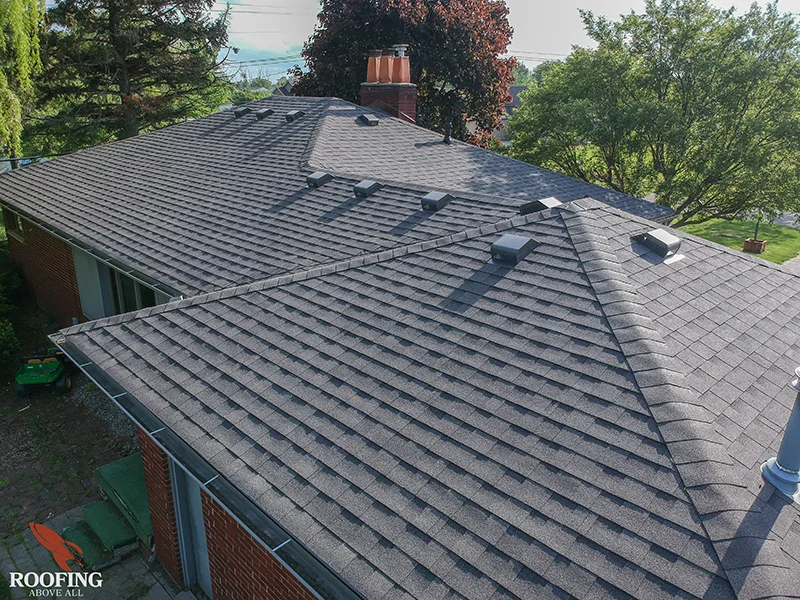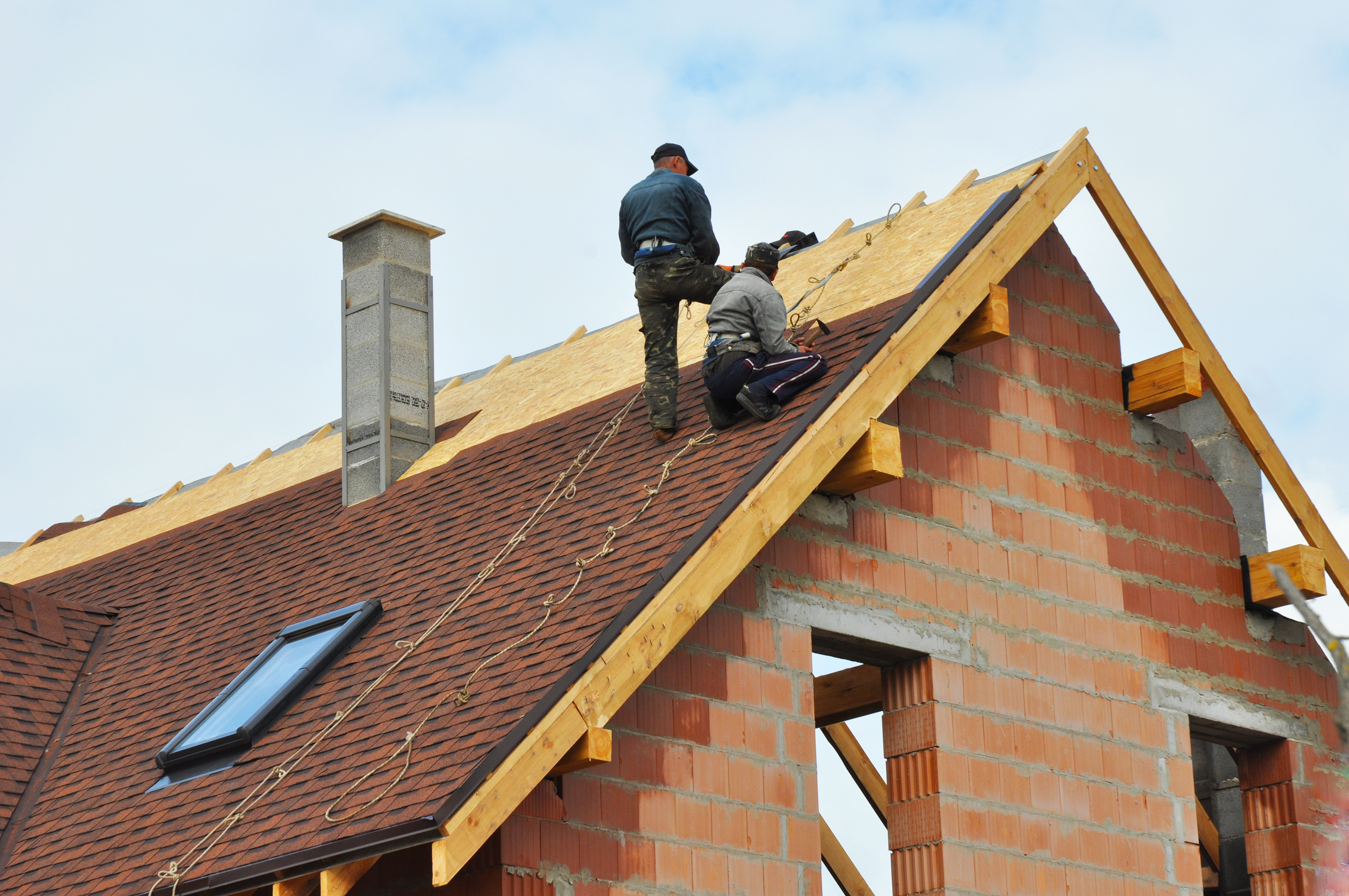Roofing for Dummies
Roofing for Dummies
Blog Article
Flat Roof Services: Specialist Roofing System Repair Providers To Repair Leaks And Damage Efficiently
Checking Out Numerous Kinds Of Roof Repairs
Ever looked at a strange dark spot on your roofing system and wondered, " What's really going on up there?" Often, identifying the best type of roof repair is like investigator work, unraveling ideas left by the weather, time, and wear. From subtle leakages to glaring damages, each repair type narrates.

Common Roof Repairs Revealed
- Leak Repair works: The tricky perpetrators-- tiny cracks or holes where water insinuates. Neglecting them can turn a mild trouble into an expensive problem.
- Shingle Replacement: Missing out on or broken shingles aren't simply an eyesore; they're invitations for water damage and bugs.
- Flashing Repair: Those metal strips around chimneys and vents? When harmed, they end up being entrances for leaks.
- Roofing Vent Repair Works: Appropriate ventilation keeps your attic dry and your energy bills low. When vents fail, the roofing suffers silently.
When Small Repairs Make a Huge Difference
Envision a buddy who disregarded a small roof leakage, believing it was no big offer-- until a storm hit, turning a drip into a deluge inside their home. This anecdote highlights why timely repairs matter. The right repair might be as basic as sealing a crack or as involved as replacing a number of shingles. How do you decide? Here's a fast decision guide:
| Issue | Common Repair | Signs to Expect |
|---|---|---|
| Leakages | Sealant application or patching | Water spots on ceiling, mold development |
| Harmed Shingles | Shingle replacement | Missing granules, curling edges |
| Flashing Problems | Metal flashing repair work or replacement | Rust, separation from roof |
| Ventilation Issues | Vent repair work or installation | Extreme attic heat, moisture accumulation |
Does not the complexity of roofing repair work make you value the workmanship behind a sturdy roofing? Often, a patchwork job isn't enough-- other times, a fast repair revives your entire roofing system. What's clear is this: understanding the types of repair work empowers house owners to act decisively, securing their financial investment before small fractures become wide chasms.
Revealing the Necessary Roof Repair Work Products
When a roofing whispers signs of wear, the products you choose for repair work can either extend its life or quicken its death. Ever discovered how a handful of loose shingles can result in a cascade of leaks? That's the delicate dance between asphalt shingles and weather condition's relentless attack. These shingles, often the very first line of defense, are treasured for their balance in between toughness and ease of installation. Beware-- merely covering with mismatched shingles can turn a fast repair into a future headache.
Metal flashing typically gets away notification up until water discolorations appear on ceilings. Yet, this unassuming strip guards vulnerable joints where various roof areas fulfill. Roofers. A skilled roofing contractor understands to inspect and change rusty flashing before mold claims triumph. It's the distinction in between a small repair work and a pricey interior remodelling
Products that Matter
| Material | Common Usage | Professional Pointer |
|---|---|---|
| Asphalt Shingles | Replacing damaged or missing out on shingles | Match granule color and density for smooth blending |
| Metal Flashing | Sealing roofing joints and around chimneys | Use corrosion-resistant metals and seal edges with roof cement |
| Roof Cement | Sealing small cracks and securing flashing | Apply while warm for best adhesion and durability |
| Roofing Felt | Underlayment for wetness barrier | Staple thoroughly to avoid piercing the water resistant layer |
Have you ever questioned why some roofing systems seem to weather storms unharmed while others falter? The secret often lies underneath the surface area in the underlayment. Roofing felt, a modest yet critical material, functions as a 2nd shield when shingles stop working. Skimping here indicates welcoming moisture to sneak in undetected. Here's a professional insight: constantly make sure the felt lies flat with no wrinkles; even a little bubble can trap wetness and result in premature rot.
- Check fasteners-- loose nails can loosen shingles and stir catastrophe.
- Use a multi-layer method; combining products boosts durability.
- Keep in mind, roof cement is your pal but not a cure-all; it's finest for spot repair work.
In the world of roofing repair work, accuracy with products goes beyond simple patchwork. It's a calculated symphony of texture, moisture control, and weather resistance. The next time you lift a shingle, ask yourself: does this repair work honor the roofing's initial defense or simply paper over the fractures?
Assessing the Damage with a Keen Eye
Ever climbed onto your roof just to realize that what appeared like a minor leakage might be concealing a labyrinth of damaged shingles and deformed decking underneath? The primary step in any roof repair work is a precise inspection. Stroll the border with care and try to find curled edges, dark areas, or granule loss on the shingles-- these subtle indications often whisper louder than a gaping hole. Do not just look; study the angles, because water infiltration hardly ever announces itself nicely.
Gathering Products: The Precision of Preparation
Before rising the ladder, guarantee you have all the necessary tools at arm's reach. Think of the disappointment of balancing on a slanting surface area, realizing you forgot your roof cement or roofing nails. Here's a list to keep helpful:
- Replacement shingles matching your existing roofing system
- Hammer and galvanized roofing nails
- Roofing cement or sealant
- Energy knife for accurate cuts
- Flat lever to get rid of damaged shingles
- Safety belt and non-slip shoes
Accuracy in Removal and Replacement
Getting rid of harmed shingles requires both strength and finesse. check here Insert the lever carefully under the shingle, raising nails without tearing adjacent locations. One may be tempted to pull powerfully, however gradual utilize avoids additional destruction. When putting brand-new shingles, stagger them properly-- remember, a misaligned shingle can become an entrance for rainwater, inviting leakages that slyly deteriorate your home's structure gradually.
Sealing the Offer: Preventing Future Leaks
Applying roofing cement isn't just slathering tar; it's about creating a durable barrier. Dab a modest amount under the shingle tabs and press firmly, making sure a tight fit. Too much cement can split in the sun, too little welcomes moisture. Have you discovered how some roofing systems survive storms untouched? That's the outcome of expert sealing, a subtle art that transforms easy fixes into enduring security.
Security Tips Every Do It Yourself Roofing Contractor Should Swear By
- Never ever deal with a wet or windy day-- slips happen faster than you believe.
- Utilize a tough ladder put on company ground and examine its angle.
- Wear gloves to secure your hands from sharp edges and nails.
- Keep an emergency treatment kit close by; small cuts can escalate if overlooked.
- Deal with a pal whenever possible-- roofings aren't a solo adventure.
Why Trusting Specialist Roofer Matters
Ever seen how a simple leak can silently change into a catastrophe? Roof repair work demand precision, and working with novices typically leads to patchwork services that crumble with the next storm. An expert contractor doesn't simply slap on shingles; they diagnose the root cause, whether it's used flashing, jeopardized underlayment, or hidden rot.
Imagine climbing onto the roofing system yourself, equipped with a hammer and some nails, just to realize you've gotten worse the issue. The truth is, roof damage isn't constantly noticeable from the ground or even the attic. Specialists wield moisture meters and infrared cameras-- tools that expose the hidden. Would you trust your home's guard to uncertainty?
Key Advantages of Professional Roof Contractors
- Accurate Assessment: They identify subtle signs like granule loss or drooping decking that the majority of miss out on.
- Code Compliance: Ensuring repair work fulfill regional structure codes, preventing future insurance coverage headaches.
- Product Competence: Picking the ideal products to match your roofing system's unique profile and climate challenges.
- Security First: Browsing high slopes and heights with proper harnesses and devices.
- Warranty Guarantee: Support repairs with assurances that protect your financial investment.

Professional Tips for Hiring the Right Roofer
- Validate licensing and insurance-- do not bet with unverified qualifications.
- Request a comprehensive written estimate outlining scope and products.
- Inquire about their process for resolving covert damage discovered during repair work.
- Examine how they manage particles removal-- roof work should not leave a mess behind.
- Confirm experience with your particular roofing type, whether asphalt, metal, or tile.
In roof repair work, faster ways frequently cost more in the long run. The specialists understand when to fix, when to change, and how to extend your roof's lifespan. Isn't it better to secure your home's very first line of defense with those who see beyond the surface?
Professional Roofing System Fixes in Baltimore County
Baltimore County is a lively area known for its varied neighborhoods and rich history. With a population that delights in a mix of rural and city living, the county provides tourist attractions like the beautiful Loch Raven Reservoir and the lively Towson Town. Locals benefit from a strong local economy and access to quality public parks and cultural occasions, making it a desirable location to live and work.
For dependable guidance and a totally free consultation on roofing repairs, think about connecting to CRG Roofing and Siding. They offer expert assistance customized to your needs and help guarantee your roofing stays in outstanding condition.
Report this page